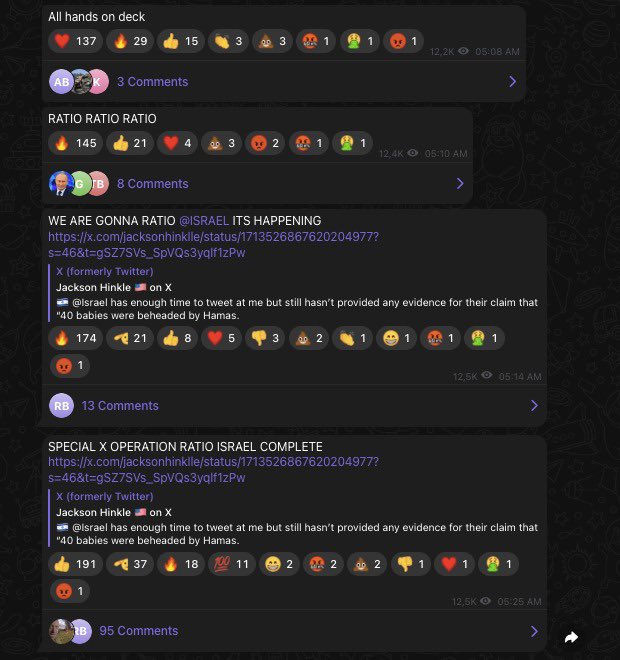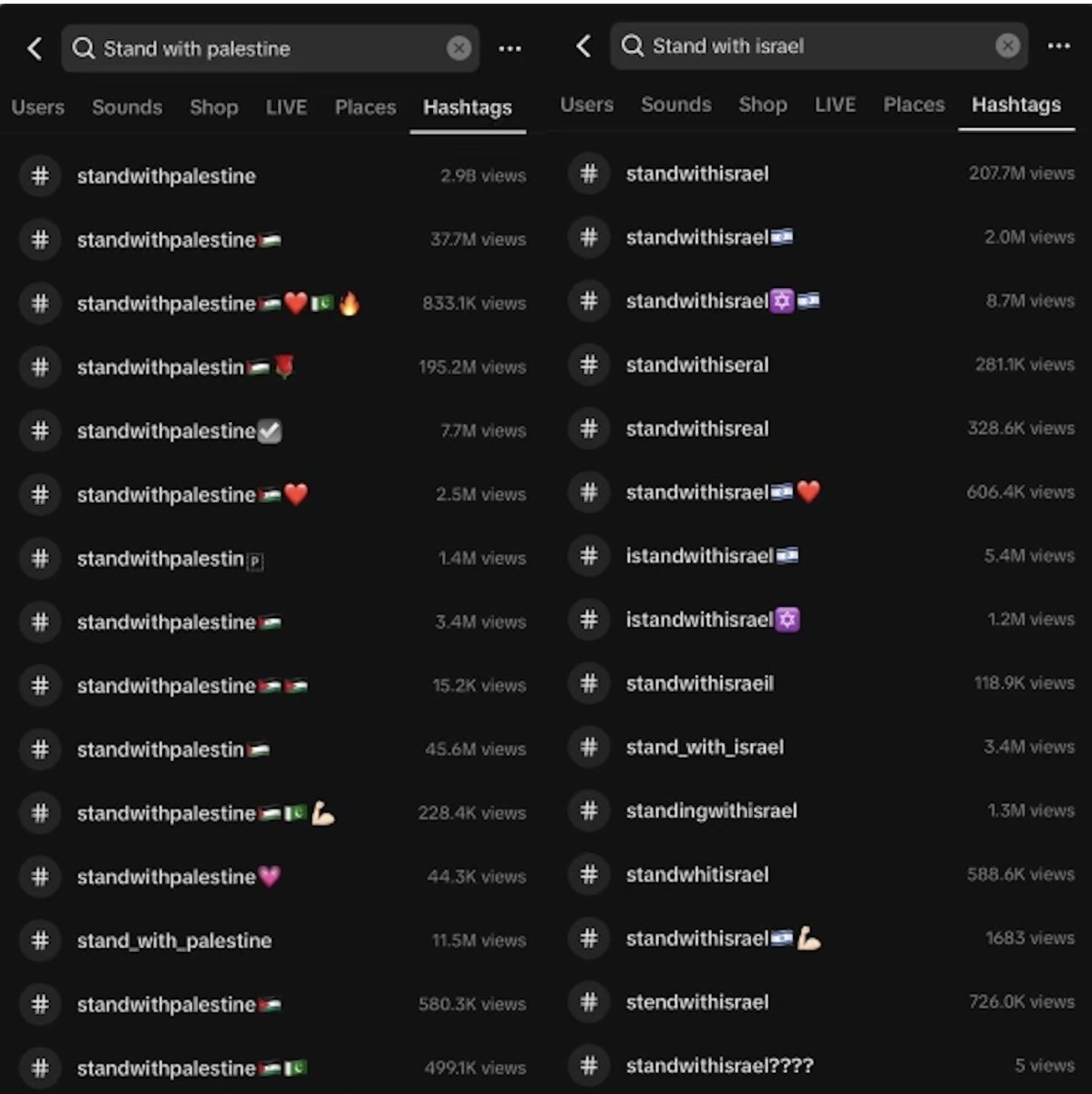The TikTok War: Why High School & College Kids Are Getting The Wrong Information about Hamas & Israel
I spent the weekend trying to reverse engineer the TikTok algorithm, as I am convinced this is the reason we're losing the information war with high school & college students.
I spent the weekend trying to reverse engineer the TikTok algorithm, as I am convinced this is the reason we're losing the information war with high school & college students.
🚩One red flag was seeing San Francisco high school students who were aggressively anti-Israel and asking myself where they were getting news.
Their protests happened right after the fake @nytimes headline that accused Israel of the hospital bomb.
Their protests happened right after the fake @nytimes headline that accused Israel of the hospital bomb.
https://twitter.com/qurantheonlyway/status/1715437165964886282
🚩The bigger red flag was seeing 51% of Americans ages 18-24 believe Hamas (terrorists who raped & murdered innocent women & children) believe Hamas was justified. Wtf.
My high school classmates who lived through 9/11 would have never believed this.
My high school classmates who lived through 9/11 would have never believed this.
https://twitter.com/shiraeis/status/1716860608614633529
Why do high school students in San Francisco hate Israel so much?
I'd assume very few of them have been to Israel, let alone have a fully formed view of a multi-generation conflict.
They're 16 years old and live in California. Let's be serious for a minute.
I'd assume very few of them have been to Israel, let alone have a fully formed view of a multi-generation conflict.
They're 16 years old and live in California. Let's be serious for a minute.
For Gen Z, TikTok Is the New Search Engine
TikTok is the #1 search engine for more than half of Gen Z.
TikTok is the primary news source for many younger demos & while we have justifiable concerns about The New York Times & mainstream media, this has become a TikTok war.
TikTok is the #1 search engine for more than half of Gen Z.
TikTok is the primary news source for many younger demos & while we have justifiable concerns about The New York Times & mainstream media, this has become a TikTok war.
What I discovered through data and user testing is extremely concerning & I believe requires more attention, as this is an actual national security issue.
When I engaged with one post on TikTok supporting opposing views, my entire feed became aggressively anti-Israel. It was as if I was placed in an AB test variant and was told to see this war with Israel being the evil side.
As I looked at the tactics and data, I saw that much of TikTok is being controlled by anti-Israel bot farms, paid commenters/likers/sharers — much of which is paid for by Hamas supporting organizations. 

I then looked at the data and saw that Israel is losing the TikTok war by a longshot.
As an example, the top hashtag is 3b views for Palestine versus 200m views for Israel.
If you look at other hashtags, it is clear that Israel has a distribution issue.
As an example, the top hashtag is 3b views for Palestine versus 200m views for Israel.
If you look at other hashtags, it is clear that Israel has a distribution issue.

Because the TikTok narrative is now so anti-Israel, the engagement flywheel encourages creators to support that narrative because it’s getting the most attention and creating anti-Israel content helps them increase their following.
While we are spreading our perspectives on Twitter, we need to figure out a way to balance out the narrative on TikTok otherwise I worry we will fall too far behind with high school and college kids — and this is where they get their news.
I’m still researching — and if anybody with a data background wants to join, please let me know.
I have never been a "social media is bad" person, but high school/college students are literally our future & we're on the brink of a potential global war.
So maybe this matters.
I have never been a "social media is bad" person, but high school/college students are literally our future & we're on the brink of a potential global war.
So maybe this matters.
• • •
Missing some Tweet in this thread? You can try to
force a refresh

 Read on Twitter
Read on Twitter



